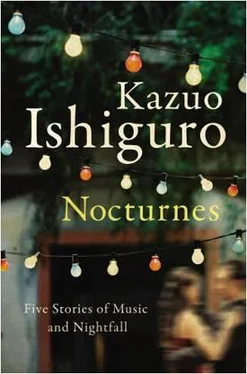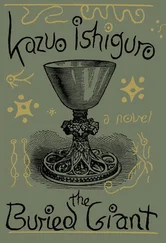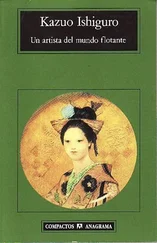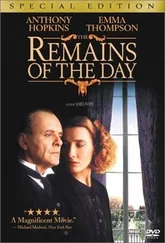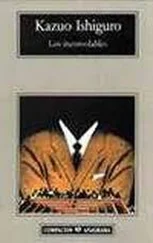“I could suddenly see something,” he explained to us. “A garden I’d not yet entered. There it was, in the distance. There were things in the way. But for the first time, there it was. A garden I’d never seen before.”
The sun had almost set when he finally left the hotel, crossed the piazza to the cafe tables, and allowed himself the luxury of an almond cake with whipped cream, his sense of elation barely contained.
FOR THE NEXT SEVERAL DAYS, he returned to her hotel each afternoon and always came away, if not with the same sense of revelation he’d experienced on that first visit, then at least filled with fresh energy and hope. Her comments grew bolder, and to an outsider, had there been one, might have seemed presumptuous, but Tibor was no longer capable of regarding her interventions in such terms. His fear now was that her visit to the city would come to an end, and this thought began to haunt him, disturbing his sleep, and casting a shadow as he walked out into the square after another exhilarating session. But whenever he tentatively raised this question with her, the replies were always vague and far from reassuring. “Oh, just until it gets too chilly for me,” she had said once. Or another time: “I guess I’ll stay as long as I’m not bored here.”
“But what’s she like herself?” we kept asking him. “On the cello. What’s she like?”
The first time we raised this question, Tibor didn’t answer us properly, just saying something like: “She told me she was a virtuoso, right from the start,” then changing the subject. But when he realised we wouldn’t let it go, he sighed and began to explain it to us.
The fact was, even at that first session, Tibor had been curious to hear her play, but had been too intimidated to ask her to do so. He’d felt only a tiny nudge of suspicion when, looking around her room, he’d seen no sign of her own cello. After all, it was perfectly natural she wouldn’t bring a cello on holiday with her. And then again, it was possible there was an instrument-perhaps a rented one-in the bedroom behind the closed door.
But as he’d continued to return to the suite for further sessions, the suspicions had grown. He’d done his best to push them out of his mind, for by this time, he’d lost any lingering reservations about their meetings. The mere fact that she was listening to him seemed to draw fresh layers from his imagination, and in the hours between these afternoon sessions, he’d often find himself preparing a piece in his mind, anticipating her comments, her shakes of the head, her frown, the affirming nod, and most gratifying of all, those instances she became transported by a passage he was playing, when her eyes would close and her hands, almost against her will, began shadowing the movements he was making. All the same, the suspicions wouldn’t go away, and then one day he came to the room and the bedroom door had been left ajar. He could see more stone walls, what looked to be a medieval four-poster bed, but no trace of a cello. Would a virtuoso, even on holiday, go so long without touching her instrument? But this question, too, he pushed out of his mind.
AS THE SUMMER WENT ON, they began to prolong their conversations by coming over to the cafe together after their sessions, and she’d buy him coffees, cakes, sometimes a sandwich. Now their talk was no longer just about music-though everything always seemed to come back to it. For instance, she might question him about the German girl he’d been close to in Vienna.
“But you must understand, she was never my girlfriend,” he would tell her. “We were never like that.”
“You mean you never became physically intimate? That doesn’t mean you weren’t in love with her.”
“No, Miss Eloise, that is incorrect. I was fond of her, certainly. But we were not in love.”
“But when you played me the Rachmaninov yesterday, you were remembering an emotion. It was love, romantic love.”
“No, that is absurd. She was a good friend, but we did not love.”
“But you play that passage like it’s the memory of love. You’re so young, and yet you know desertion, abandonment. That’s why you play that third movement the way you do. Most cellists, they play it with joy. But for you, it’s not about joy, it’s about the memory of a joyful time that’s gone for ever.”
They had conversations like this, and he was often tempted to question her in return. But just as he’d never dared ask Petrovic a personal question in the whole time he’d studied under him, he now felt unable to ask anything of substance about her. Instead, he dwelt on the little things she let fall-how she now lived in Portland, Oregon, how she’d moved there from Boston three years ago, how she disliked Paris “because of its sad associations”-but drew back from asking her to expand.
She would laugh much more easily now than in the first days of their friendship, and she developed the habit, when they stepped out of the Excelsior and crossed the piazza, of linking her arm through his. This was the point at which we first started noticing them, a curious couple, he looking so much younger than he actually was, she looking in some ways motherly, in other ways “like a flirty actress,” as Ernesto put it. In the days before we got to talking with Tibor, we used to waste a lot of idle chat on them, the way men in a band do. If they strolled past us, arm in arm, we’d look at each other and say: “What do you think? They’ve been at it, yes?” But having enjoyed the speculation, we’d then shrug and admit it was unlikely: they just didn’t have the atmosphere of lovers. And once we came to know Tibor, and he began telling us about those afternoons in her suite, none of us thought to tease him or make any funny suggestions.
Then one afternoon when they were sitting in the square with coffee and cakes, she began to talk about a man who wanted to marry her. His name was Peter Henderson and he ran a successful business in Oregon selling golfing equipment. He was smart, kind, well respected in the community. He was six years older than Eloise, but that was hardly old. There were two young children from his first marriage, but things had been settled amicably.
“So now you know what I’m doing here,” she said with a nervous laugh he’d never heard from her before. “I’m hiding out. Peter has no idea where I am. I guess it’s cruel of me. I called him last Tuesday, told him I was in Italy, but I didn’t say which city. He was mad at me and I guess he’s entitled to be.”
“So,” said Tibor. “You are spending the summer contemplating your future.”
“Not really. I’m just hiding.”
“You do not love this Peter?”
She shrugged. “He’s a nice man. And I don’t have a lot of other offers on the table.”
“This Peter. He is a music lover?”
“Oh… Where I live now, he would certainly count as one. After all, he goes to concerts. And afterwards, in the restaurant, he says a lot of nice things about what we just heard. So I guess he’s a music lover.”
“But he… appreciates you?”
“He knows it won’t always be easy, living with a virtuoso.” She gave a sigh. “That’s been the problem for me all my life. It won’t be easy for you either. But you and me, we don’t really have a choice. We have our paths to follow.”
She didn’t bring Peter up again, but now, after that exchange, a new dimension had opened in their relationship. When she had those quiet moments of thought after he’d finished playing, or when, sitting together in the piazza, she became distant, staring off past the neighbouring parasols, there was nothing uncomfortable about it, and far from feeling ignored, he knew his presence there beside her was appreciated.
ONE AFTERNOON when he’d finished playing a piece, she asked him to play again one short passage-just eight bars-from near the close. He did as asked and saw the little furrow remain on her forehead.
Читать дальше
